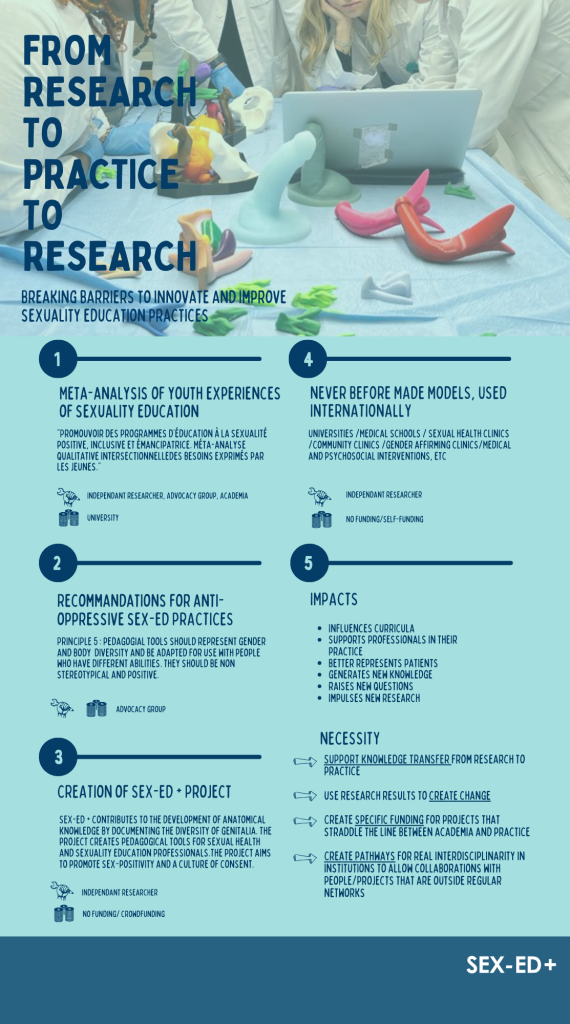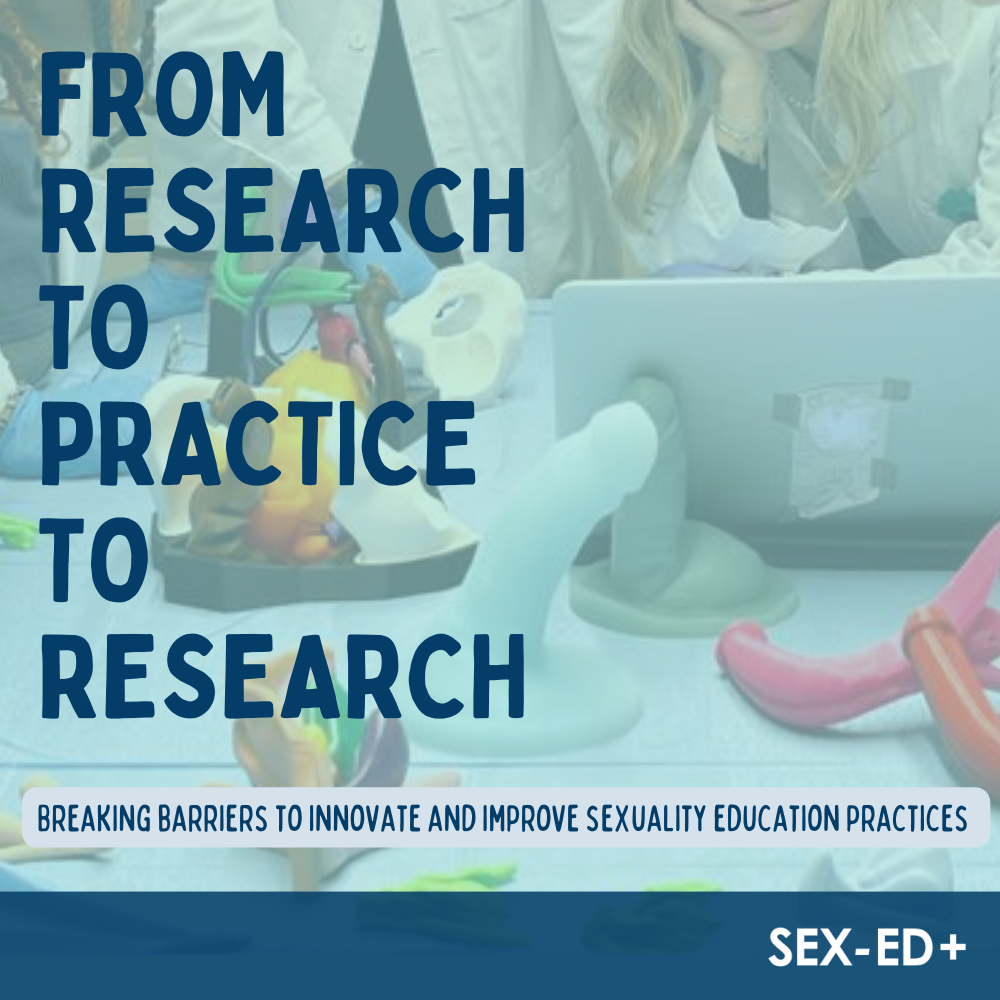SEX-ED +: a project born of social science research
One of the most common misconception about SEX-ED + is that it’s an artistic project that has been put at the service of sexuality education. Nothing could be further from the truth! SEX-ED + is the direct result of a research partnership between a university and a non-profit organization. The goal of this research was to identify practices and principles that would contribute to anti-oppressive sexuality education.
Towards positive, inclusive and emancipatory sexuality education
As part of this research, we examined a number of publications that put forward the experiences of young people who had received sexuality education, in order to better identify the impact it had on them, and to point at ways of improving practices in the field – and thus our positive impact.
The goal of this research partnership between a non-profit dedicated to the defence of sexual health and rights and academia was twofold:
- generate new knowledge
- contribute to social change by improving sexuality education practices.
Research as a driver of social change (?)
The research was published in August 2018, followed shortly afterwards by a summary produced by the partner organization and destined for practitioners. These documents laid out 8 guiding principles :
- Young people have the right to receive quality information that takes into account their different realities
- Young people should have access to diversified content that addresses all types of sexuality, enabling them to identify their desires and accompany them in their discovery of themselves and others.
- “By and for young people” should be a key principle in sexuality education.
- Educators need to be informed about the best knowledge and practices in the field of sexuality education, and to act proactively and with equality.
- The pedagogical material used must represent diversity and be adapted to different abilities.
- Beyond the taboos surrounding sexuality, educators must show openness.
- A safe environment is essential for optimal learning in sexuality education.
- Sexuality education must be an integral part of a global project for collective emancipation and social justice, rooted in human rights.
Once these principles were set out, and the research published, what happened?
Some recommendations were put forward within a coalition. But the constraints of our respective professional environments got in the way. Researchers worked on other projects. Volunteers sought out paid contracts. The organization continued to survive on the project-based grants that partly guide its activities. And some of these fine recommendations, the fruit of many years’ work, were destined to gather dust on a shelf. Like many others before.
Transferring knowledge, turning recommendations into reality
After some fifteen years straddling the worlds of research and advocacy, I felt as though I’d been acting in the same scene from the same movie too many times. And at some point, a woman gets fed up. If we are to work for a salary that keeps us below the poverty line, can we at least have the satisfaction of contributing to social change?
There was solid research. Relevant recommendations. All that remained was to put them into practice. That’s where the SEX-ED + adventure began…
TO BE CONTINUED…



Comments are closed.